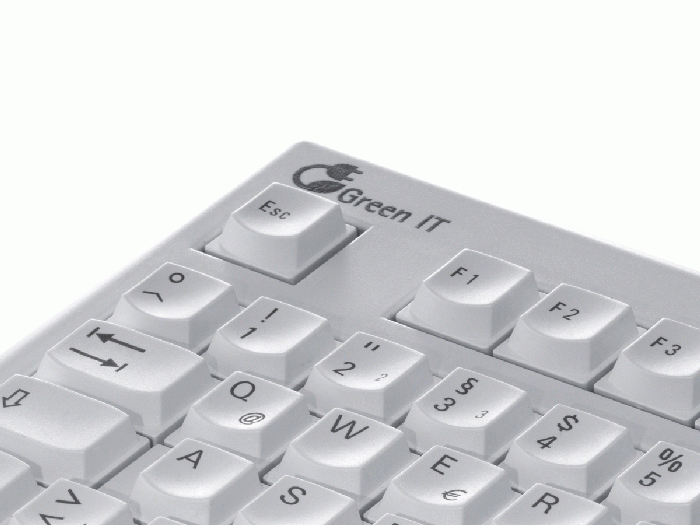Plastics in E/E: Fujitsu launches injection molded bioplastic keyboard
Just days after it announced the next phase in its Group Environmental Protection Program, information technology equipment provider Fujitsu this week introduced a computer keyboard on which 45% of the petroleum-based thermoplastics have been replaced by two plastics derived from renewable materials.
April 21, 2010
Just days after it announced the next phase in its Group Environmental Protection Program, information technology equipment provider Fujitsu this week introduced a computer keyboard on which 45% of the petroleum-based thermoplastics have been replaced by two plastics derived from renewable materials.
|
Fujitsu replaced almost half of the standard thermoplastics with ones based on renewable resources. |
The new keyboard, called KBPC PX ECO and sold under the company's 'GreenIT' label, looks, feels and costs the same as comparable standard plastic models, according to the OEM.
Although almost indistinguishable from a keyboard made from plastic—and equally resistant to liquid spills—two major parts of the new keyboard are made from 100% biodegradable materials. The palm-rest is injection molded from Arboform, a plastic based on lignin, which is a byproduct of the pulp industry, mixed with natural fibers and additives. MPW has written about Arboform in the past including in this article, where the material was used to thermoform coffins. The material was developed and is marketed by Tecnaro GmbH (Ilsfeld-Auenstein, Germany).
For the keyboard's base, Biograde C 7500 CL, a compound based on cellulose acetate and supplied by FKuR (Willich, also Germany), was specified. "The ease of processing using existing production equipment and the excellent mechanical properties of Biograde were the decisive factors for choosing this material," said Thomas Raab, project manager at Amper Plastik (Dachau, Germany), which molded the bases. "Parts made from Biograde meet the special requirements for keyboards and in some cases even exceed the properties of oil-based plastics." According to the material data sheet available through online plastics information database IDES, molders running the material should inject at high speed but can use a standard screw with a non-return flow valve. The material's density is 1.29 g/cc. From the same database, Arboform's density is listed as between 1.3-1.4 g/cc; the entire datasheet is available here.
By making the switch to renewable materials for the ECO keyboard, Fujitsu expects to save approximately 60,000 kilograms of petroleum-based plastics per year. The company also announced that the keyboards' USB cables are polyvinyl chloride (PVC)-free.
The detachable palm-rest molded of the Arboform material is said to be warmer to the touch than standard thermoplastics, making it more comfortable to users. The Fujitsu eco keyboard is available for order immediately.
Fujitsu last week announced its Group Environmental Protection Program, Stage VI, which sets new goals for fiscal 2010 through fiscal 2012 (April 1, 2010 - March 31, 2013). The Program sets forth specific goals in 18 areas, and includes provisions to reduce the company's total absolute greenhouse gas emissions associated with manufacturing to 6% below fiscal 1990 levels by the end of fiscal 2012.
About the Author(s)
You May Also Like



